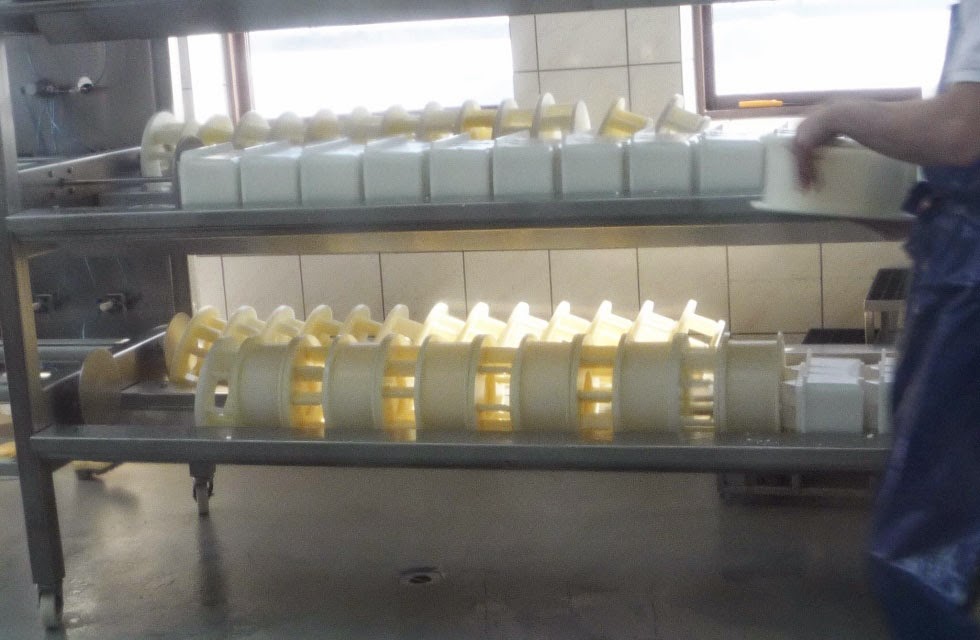Le Moutier is a
ripened, firm, pasteurised goat-milk cheese produced by the monks at Fromagerie
de l'Abbaye St-Benoît-du-Lac located on the picturesque lake
Memphrémagog in Québec's Eastern Townships.
Le Moutier is a Swiss-type cheese dotted with small openings in
the cooked paste. What distinguishes this cheese is its pristine white colour,
due to being made with 100% goat-milk. Le Moutier has a firm yet flexible and
elastic paste. It has a light springy texture and a delightful sweet goat-milk
taste and aroma. Le Moutier cooks well; it melts and browns at high
temperature. Le Moutier is an ideal choice to introduce to a child or adult who
is new to goat-milk cheese.
Le Moutier is produced in a small round wheel, this firm goat-milk
cheese looks identical to St-Benoit
cheese, a cow-milk version that the Abbaye St-Benoît also produces.
Le Moutier is appropriately named after the town and abbey located
in the Jura Bernois district in the Swiss canton of Bern.
The Fromagerie de l’Abbaye St-Benoît-du-Lac which is directed by
The monks of the Abbaye Saint-Benoît-du-Lac make their living from
their cheese-factory, an apple orchard, a cider-factory, a farm and a store
where their products are sold.
Le Moutier pairs nicely with a sparkling apple cider from Cidrerie Abbaye Saint-Benoît.
Try Le Moutier cheese in this delicious Onion Soup with Apples recipe courtesy of Wikibouffe.iga.net.
Photo source: http://www.lapresse.ca/


























